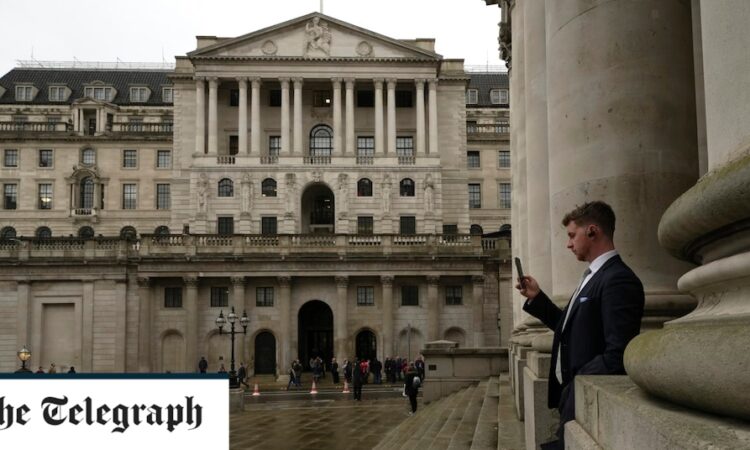
As if they haven’t got enough on their plates in dealing with inflation, central banks the world over are looking at introducing so-called “central bank digital currencies”. No meeting of bank governors is complete without the acronym “CBDCs” on the agenda. CBDCs may not yet be the talk of the town, but their creation would change the plumbing of our entire financial system.
First, the basics. The use of the word “currency” is misleading. If the Bank of England was to issue a CBDC, it would not be a cryptocurrency, but central bank electronic money that could be used by households and businesses to make payments – in essence a digital banknote. A Britcoin, not a bitcoin. You would be able to keep digital pounds in your own digital wallet, held by your own bank. So if you had a problem, you would not complain to Governor Bailey but your bank, just like now.
Read all that back. Why, you may ask, would I want a digital pound in a digital wallet? Isn’t contactless payment, using my card or phone, good enough? A very good point. Last year, an inquiry by the House of Lords Economic Affairs Committee concluded that we had not heard a good reason why the UK needs a digital pound. Lots of reasons were given as to its benefits – financial inclusion; addressing the decline in cash; countering the growth of private digital currencies being just some. But all these challenges could be addressed in other ways.
Now, given the far-reaching consequences of a digital pound, we need more political scrutiny and debate about its merits and consequences. One consequence is that people will move some of their money out of their existing bank accounts into their new digital wallets. How much is moved will depend on how the new system is designed. But, for the sake of argument, imagine 20 per cent of UK commercial bank deposits went into digital pounds. This would mean banks would have less capital; this in turn could lead to more expensive and less lending; and that, in turn, would make it tougher for businesses to invest.
Next up, bank runs. Remember the people queuing outside Northern Rock to take their money out? That was in the analogue age. Silicon Valley Bank in the US collapsed in a matter of hours, thanks in part to digital technology making it easier for people to move their cash. A digital pound could make it easier still: rather than queuing, you could transfer money from your existing bank account to your digital pound with a few swipes on your phone.
Put these two points together and a paradox appears: the more digital pounds you can hold, the more attractive the whole concept might be. But the more digital pounds you hold, the less banks will have to lend, and the greater the risk of financial stability.
Then there is privacy. You spend cash anonymously. But a CBDC could not be used anonymously without creating a haven for criminal activity. So payments data on who is using digital pounds would be needed. Who holds that, and who has access to it, opens up a can of worms, creating concerns that a digital pound could be used for state surveillance, dragging the Bank into issues that could undermine its independence.
Linked to this is cybersecurity. The Bank states the new infrastructure needed to support a digital pound would make an “attractive target for hackers or fraudsters who wish to steal funds” and it “may become a target for hostile attacks with the aim of disrupting the system and, potentially, the wider economy. For these reasons, the security of the CBDC payments system must be of the highest standard.” According to GCHQ, while a digital currency presents a “great opportunity” to democratise payment systems, it could also present a threat: “If wrongly implemented, it gives a hostile state the ability to surveil transactions. It gives them the ability … to be able to exercise control over what is conducted on those digital currencies.”
And then there is cost. How much this entire project would cost, and who would pay, is unclear. Finger in the air, come up with a number, double it, move the decimal point once to the right: you might be there.
This is why a number of us have been pressing the Government to guarantee, in legislation, that Britcoin could not be introduced without primary legislation and proper parliamentary scrutiny. The last decade has seen the Bank of England act on a grand scale while Parliament has been dozing and mute – quantitative easing being the foremost example. We cannot allow the same to happen again.
Lord Bridges is the current, and Lord Forsyth is the former, Chairman of the House of Lords Economic Affairs Committee




